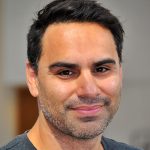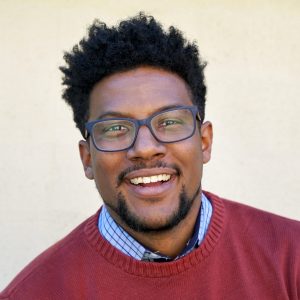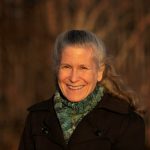2020 K-12 Seminar

March 24-25, 2020
The Friday Conference Center
1.5 CEU offered
Registration for the Global Conflict and Peacebuilding Seminar is closed.
******COVID-19 UPDATE 03/10/2020******
UNC World View values our participants and cares for the health and safety of everyone. Because of the rapidly evolving situation regarding the COVID-19, also known as coronavirus, the decision has been made to cancel the World View seminar Global Conflict and Peacebuilding.
Individuals who have paid directly to World View will receive a credit to be used at future programs during the 2019-2020 academic year or 2020-2021 academic year. If your registration has been coordinated by your K-12 school or K-12 district office, World View is contacting them directly.
We know that as educators you are working hard to meet the needs of your students during this challenging time. World View will follow up with you in the weeks to come to share program related online resources with participants who registered. We are committed to working across the state to connect university resources and provide meaningful professional development.
If you have any questions regarding this cancellation of Global Conflict and Peacebuilding please contact Kimberly Hall, administrative services coordinator, at kimcar@unc.edu.
************
K-12 educators will gain relevant information and innovative approaches to teaching about global conflict and peacebuilding. Educators will be introduced to key themes, diverse resources and strategies for exploring these topics in the classroom.
Partners: $175 per person; $600 per team of four / Non-Partners: $200 per person; $700 per team of four
Support provided by…
- African Studies Center at the University of North Carolina at Chapel Hill
- Carolina Asia Center at the University of North Carolina at Chapel Hill
- Center for European Studies at the University of North Carolina at Chapel Hill
- Duke University Middle East Studies Center
- Office of the Provost
- Office of the Vice Provost for Global Affairs
- The Consortium in Latin American and Caribbean Studies at the University of North Carolina at Chapel Hill and Duke University
- The Jack & Mary McCall Charitable Foundation
- UNC Center for Middle East and Islamic Studies
Schedule | Speakers | Concurrent Sessions | Exhibitors | Program Material | Lodging & Directions
Schedule
| TUESDAY, MARCH 24 | |
| 8:00 a.m. | Continental Breakfast |
| 8:45 a.m. | Welcome
Charlé LaMonica, Director, World View, UNC-Chapel Hill
Barbara Stephenson, UNC Vice Provost for Global Affairs and Chief Global Officer
Elaine Marshall, NC Secretary of State
|
| 9:15 a.m. | Plenary I: Peace through Science: Using Analytics and Data to Study Conflict and Promote Peace
Navin Bapat, Political Science Professor and Chair of the Peace, War, and Defense program at UNC-Chapel Hill
Political disputes, particularly those that are shocking and have long and violent histories, often create emotional divisions that are exceptionally difficult to overcome. These conflicts often lead to conclusions that humans are inherently aggressive, conflict is inevitable, and efforts to make peace are naive. However, given the salience of these arguments, they are often not subjected to scientific rigor or empirical scrutiny. This session proposes strategies to allow students to scientifically study questions related to war and peace. In doing so, students are able to learn several insights that they may find incredible due to current media coverage. For example, using science, students can see that wars are relatively rare, terrorism is relatively insignificant, and that international institutions are often quite effective at promoting peace. The scientific methods further allows students to understand the general root causes of conflict, which gives them the opportunity to creatively propose solutions. This plenary will focus on how to adopt the scientific approach to studying war and peace, and will highlight some of the key findings over the last two decades.
|
| 10:15 a.m. | Break |
| 10:30 a.m. | Plenary II: In a World of Conflict, How Educators Make Peace Possible
Ann-Louise Colgan, Director of Public Education, United States Institute of Peace
This year marking the 35th anniversary of its creation by Congress, the U.S. Institute of Peace is dedicated to preventing and resolving violent conflict and empowering people and institutions to build peace. Through its program work in conflict zones and its educational work across the U.S., it is helping make peace possible—including by equipping and inspiring educators who are making real change, and whose stories matter. This plenary will reflect on the importance of teaching peace in today’s world.
|
| 11:15 a.m. | Transition to session |
| 11:20 a.m. | Concurrent Sessions I |
| 12:20 p.m. | Lunch |
| 1:15 p.m. |
Plenary III: The World Becomes What We Teach
Zoe Weil, President and Co-founder, Institute for Humane Education
Imagine a world in which students learn how to collaboratively solve problems in their communities and the world. Imagine their eagerness to apply what they study in school to the issues they care most about. Imagine not only their sense of accomplishment and efficacy but also the impacts of their work on the future. Zoe Weil will offer a vision and concrete ideas for bringing solutionary thinking and action to youth so that they can become solutionaries for a just, healthy, and humane world.
|
| 2:15 p.m. | Transition to Sessions |
| 2:30 p.m. | Concurrent Session II |
| 3:30 p.m. | Break and Transition to Sessions |
| 3:45 p.m. | Concurrent Session III |
| 4:45 p.m. | Adjourn for the day |
| WEDNESDAY, MARCH 25 | |
| 8:00 a.m. | Continental Breakfast |
| 8:30 a.m. | Plenary IV: Revolutionary Teaching: Exploring Latin American Insurgencies Through Live Documentary
Miguel La Serna, Associate Professor of Latin American History, UNC-Chapel Hill
One of the challenges of teaching global historical content is that we cannot bring all students out of the classroom to interact with the places, people, and periods they study. But what if we could bring these places, people, and periods into the classroom? Using Latin American Cold War history as a case study, this session explores the ways in which instructors can use the digital humanities to create an interactive, immersive classroom environment that reaches the diverse learning styles of all students.
|
| 9:30 a.m. | Plenary V: War, Peace, and Shifting Alliances in the Middle East
Curtis Ryan, Professor of Political Science, Appalachian State University
Middle East politics has long been characterized by shifting regional alliances and frequent intervention by foreign powers. Since the 2011 ‘Arab Spring’, regional politics has been shaken to its foundations, including new forms of foreign intervention and shifting alliances, with profound implications for war, peace, and even the world’s largest refugee crisis. This session offers a primer on changing regional alliances and the prospects for war and peace in one of the world’s most tumultuous regions.
|
| 10:30 a.m. | Break |
| 10:45 a.m. | Plenary VI: Stories for Change
Kane Smego, Associate Director, Next Level, US Department of State and Spoken Word Poet and Hip Hop Artist
Drawing on his experiences as an international touring artist and youth educator, and his experiences growing up in the American South, this dynamic talk and performance focuses on issues of race, gender, community building, and the stories that we all carry. From the backwoods of Alaska to a hip hop festival in Zimbabwe, Kane takes listeners on a journey exploring the role that our layered identities, experiences, and stories play in leadership, relationship building and community engagement.
|
| 12:00 p.m. | Closing Remarks/Next Steps/Adjourn |
Plenary Speakers
Concurrent Session Presenters
Daniel Charles is a U.S. Army combat veteran, serving with the N.C. Army National Guard 5-113th Field Artillery Regiment in support of Operation Iraqi Freedom in 2005-2006. Daniel met his colleague and co-presenter, Stan Lake, during his combat deployment. While on deployment, Daniel was placed in a vehicle with Stan and was handed a Canon GL-1 Camcorder that Stan purchased and he began filming. Daniel and Stan took it upon themselves to film shenanigans and animal adventures as a way to promote morale in the face of the horrors of war while they were on their combat deployment, as evidenced in the film Hammer Down. Daniel grew up in the DIY punk rock scene and carries that ethos and passion forward with his role in Catching Creation, the storytelling and film company founded by Stan Lake. Daniel has an Art Degree from Lenoir-Rhyne University and uses his art as a form of therapy for himself and others with his project called Jungkart.
Concurrent Sessions
| GRADES K-8 |
| Saving Humanity: Perspective Through Service Learning is the Kryptonite of Global Conflict
Lara Hamlet, Instructional Coordinator, Island Montessori Charter School
Only one resource keeps Superman from saving humanity- kryptonite. Do you know the kryptonite of lessons in civic engagement designed to teach future youth how to save humanity from global conflict? Perspective. Maria Montessori said, “An education capable of saving humanity is no small undertaking; it involves the spiritual development of man, the enhancement of his value as an individual, and the preparation of young people to understand the times in which they live.” With service-learning woven into the subject matter, children are given the tools of perspective needed to practice skills of cultural competence. The difference between teaching children about being a human and understanding how to be a kind human is perspective. Peace education is truly no small undertaking and not achieved by just scratching the surface, but through deep-rooted lessons with cross-cultural and cross-curricular content. In this session, educators will gain trust in implementing service-learning, while deepening their understanding of the experiential learning continuum, as it relates to the scope and sequence of peace education. Educators will explore learning opportunities that are solution-focused in the development of tolerance and embracing the appreciation of differences being navigated with respect – all while academically challenging students.
|
| Peace-Building and Mindfulness Practice: A Multimodal Approach for a Sustainable Future
Dr. Elizabeth O. Crawford, Associate Professor, Watson School of Education, UNCW
Social-emotional learning, including the ability to manage emotions, feel empathy for others, experience positive relationships, and make responsible decisions, is considered critical to achieving a sustainable future for all. The integration of mind and body using mindfulness practice in the classroom is a promising approach to foster students’ wellbeing and sense of agency essential to addressing issues of local and global significance as underscored in the 2030 Sustainable Development Goals. Applying theory to practice, this session explores teaching and learning applications of yoga and movement, mindfulness, and gratitude practice among children and adults. Attendees will discover how multimodalities engage emotions and cognition simultaneously, thereby, sparking empathy, investigation, solution-seeking, and reflection.
|
| GRADES K-12 |
| Rigoberta Menchú and the Fight for Indigenous Rights
Corin Zaragoza Estrera, Outreach Coordinator, UNC-Duke Consortium in Latin American and Caribbean Studies
Rigoberta Menchú is a K’iche’ Maya human rights activist from Guatemala who won the Nobel Peace Prize in 1992. During the Guatemalan Civil War, Menchú fought for indigenous peoples’ rights, and she continues this work today. Participants in this session will learn about the peacebuilding work that earned Menchú the Nobel Peace Prize, as well as examine a variety of literature, nonfiction, and primary sources that can be used to teach about her in the classroom.
|
| Resources for Teaching Global Conflict and Peacebuilding
Liz Bucrek, Carolina Navigators Program Manager, UNC Center for Global Initiatives
In this interactive session, you will learn how Carolina Navigators makes it easy for you to teach about global conflict and peace building in your classroom. An innovative service-learning program, Navigators works with UNC-Chapel Hill students with international expertise, to create FREE global education resources for K-14 educators and students across the state. Participants will go on a virtual and hands-on tour of available global education resources and participate in a model activity. Educators will have the opportunity to explore our Universal Human Rights and United Nations, African American History and Culture, World Religions, and Netherlands culture kits. In addition, you will become aware of playlists on the Navigators YouTube channel including Human Rights, Activism, Immigration and Refugees, World Religions, and Stereotypes and Single Stories, that you can use in your classroom. Finally, the presenter will share additional free online resources for sharing these important topics with your students such as Teaching Tolerance Film kits, Youth for Human Rights Education Package, Peace One Day, and the U.N. International Day of Peace.
|
| Global C3 Inquiries Through Global Conflict and Peacebuilding
Nada Wafa, Doctoral Student/Research and Teaching Assistant, College of Education, North Carolina State University
This session will cover a range of topics about global education and inquiry-based learning. It will introduce a new Global C3 hub that has been established through the C3Teachers.org platform, a network that serves 14,000 teachers in the United States, and has expanded to serve teachers globally across the world with the aim to have more teachers join in developing new inquiries and using existing inquiries in their classroom. Global C3 hub is a workspace that intends to collaborate with teachers all around the world to develop globally-relevant internationally focused C3 framework instructional practices materials that are aligned with the UN Sustainable Development Goals. In addition, this session will provide a sample inquiry example about fossil fuels that can be used in your classroom, and demonstrate how to utilize the hub and download inquiry blueprints for various topics. The Global C3 hub is committed to building a strong global community and strengthening global education in the world to empower global citizens to take actions to live in a more sustainable world.
|
| GRADES 6-12 |
| Introduction to Peacebuilding- Case Study-Yemen
Fadia Thabet, Middle East and North Africa conflict analyst expert, focusing on al Qaeda and ISIS movement
This session will outline basic perspectives and approaches to frame conflict analysis for conflict transformation, using experiential activities and a global conflict and peacebuilding case study of Yemen. Through this interactive session, participants will learn how to apply conflict mapping/assessment and transformation lenses to a variety of conflicts.
|
| Powerful Proponents of Peace: Women Engaged in Peacebuilding in the Middle East & North Africa
Emma Harver, Outreach Coordinator, Duke-UNC Consortium for Middle East Studies
Data demonstrates that women’s participation in conflict resolution can improve outcomes before, during, and after conflict (Council on Foreign Relations, 2019). This session will focus on women in the Middle East and North Africa who are involved in peacebuilding efforts throughout the MENA region. Teachers will receive a brief overview about the power of women to build stable and resilient societies before exploring individuals and organizations active in peace work in the Middle East and North Africa. Teachers will receive a list of resources for teaching and learning about women peacebuilders in the Middle East, as well as other resources from the Duke-UNC Consortium for Middle East Studies.
|
| Hammer Down
Adam Furr, Social Studies Teacher, Wilkes County Schools, and Operation Iraqi Freedom veteran
Daniel Charles, Operation Iraqi Freedom veteran Students spend much of their time on the computer. This session explores ways to move students away from the computer and back into the community. We will explore how students use their best resource – their community – as a teacher. Through primary research including observations, participation and interviews, students can create compelling essays through a qualitative approach to understanding their subjects. Students improve their communication, social, problem-solving and technology skills. And, yes, they do get to use their smartphones! We will have an opportunity to look at portions of the documentary At a Stranger’s Table: An In-Depth Introduction to the East Coast Migrant Farmworker in which some of my humanities students participated in the interview process.
|
| Teaching About Global Conflict & Peace in a Discouraging World
Ann-Louise Colgan, Director of Public Education, United States Institute of Peace (USIP) Today’s world often seems rife with violent conflict, and “peace” can feel like a more remote and elusive concept than ever—but peacebuilding is happening every day, in very practical ways, and even in the most difficult circumstances. Finding ways to unpack complex situations, to look behind the headlines, to develop new perspectives and skills can all help encourage young people to engage with the world and can help them see how peace can be possible. This session will encourage educators to: deepen their own understanding of core concepts related to global conflict and peace; explore approaches to teaching about complex current crises around the world in ways that can help students begin to understand and envision ways to build peace; and discover lessons, activities, and other practical resources to engage students on this key content.
|
| Why Teach about the Holocaust in 2020?
Juanita Ray, Director of Teacher Workshops for Western NC, NC Council on the Holocaust
This session will ask participants to reflect on basic Holocaust history, understanding that it was a watershed event in the history of the world, while examining the choices that people, groups, and governments made during WWII. We will examine how democratic institutions are fragile and can be easily pulled apart by apathy and extremism. Best practice activities will include ways to help our students understand the ramifications of racism, stereotyping, and prejudice and why we continue to teach the lessons of the Holocaust in the twenty-first century.
Expected Outcomes: 1. Understand that the Holocaust was a watershed event in world history and it happened because people, groups, and governments made choices. 2. Help students see the ramifications of hate, prejudice, and stereotyping and that words and actions do matter. 3. Understand that democratic institutions are not automatically sustained and that extremism is dangerous to democratic institutions. |
| Exploring Economic and Political Conflict Through the Lens of Documentary Photography
Jenny Marvel, Head of School and Community Programs, Ackland Art Museum, UNC-Chapel Hill
During this interactive session, participants will investigate select images by internationally renowned photographer Sebastião Salgado and analyze some of the ways he has documented economic and political conflicts across the globe. Participants will discover teaching ideas to use with students in the classroom. Based upon the conversations and experiences with the works of art during the session, participants will consider more broadly the role works of art can play in classroom curriculum, whether relating to a specific discipline or multiple disciplines. Participants will also learn about Ackland Art Museum programs and resources available to K12 Educators and their students.
|
| Borders to Bridges: Exploring Creativity-based Curriculum on Immigration, Cultural Competency and Social-Emotional Development
Lynn Ditchfield, Ph.D. candidate, Adjunct Professor, Fitchburg State University and Co-Coordinator Borders to Bridges pilot, Martha’s Vineyard Public Schools
Allison Haskins, International Education Program Coordinator, Center for European Studies, UNC-Chapel Hill
Our world is experiencing mass migration. An estimated 70.8 million people have left their homelands. War, violence, hunger, poverty, intolerance, unemployment, employment, climate changes, search for freedom, determination, longing, and hope for a better future have driven this exodus. Rather than seeing this solely as a problem, let us instead envision the dynamic fusion of energy in the world as potential enrichment of our communities, broadening of our perspectives, and deepening our understanding of ourselves and humanity. Currently in the U.S., we are experiencing a period when messages of hatred, violence, bullying and ethnic/racial prejudice are pervasive. As educators, we witness the crippling effects on students. It is essential to build awareness and resilience to empower all students – from the most vulnerable to the most privileged – to reach their potential and embrace new perspectives. Creative interactions in the classroom can transform attitudes to overcome fear and bring compassion, empathy, and hope for the future. This creativity-based immigration curriculum session is an interactive workshop. Participants will experience components of three hands-on lesson plans from Borders to Bridges: Creativity-Based Immigration Curriculum Guidebook showing how arts engagement leads to meaningful discussion and learning around critical issues for social-emotional development and cultural competency. Participants will be able to adapt these exercises for a variety of K-12 disciplines.
|
| Historical and Modern Anti-Semitism
Juanita Ray, Director of Teacher Workshops for Western NC, NC Council on the Holocaust
This session will review the history of anti-Semitism and how it was a catalyst for the Holocaust. Participants will reflect upon historical anti-Semitic terms and images as well as those used by white supremacists and neo-Nazis, increasing understanding of how those images and ideas are used to continue Holocaust denial and distortion in our world today. The session will support educators in helping students navigate through the rise of anti-Semitism using critical thinking and tolerance activities.
|
| GRADES 9-12 |
| Getting Students Excited About Researching Global Issues
Matt Cone, Social Studies Teacher, Carrboro High School, Chapel Hill Carrboro City Schools This session will explore strategies for engaging students in the study of a contemporary global issue and preparing them to present on facets of the issue that most interest them. Teachers who attend this session will gain an understanding of how to select issues that will particularly resonate with students, how to get students access to the most current and relevant news and scholarship on the issue, how to design a project that allows students to research a facet of the larger issue that interests them, how to assist students in arranging interviews with experts from around the world, how to guide students in synthesizing what they learned from their research, and how to present this research to an audience of community members.
|
Exhibitors
 |
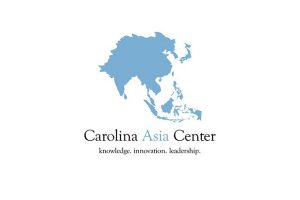 |
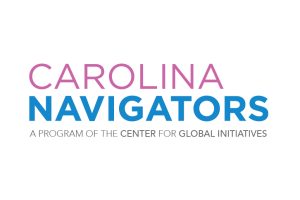 |
 |
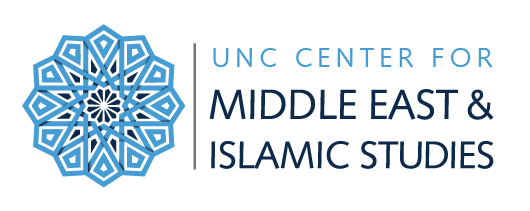 |
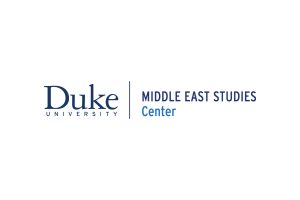 |
 |
 |
 |
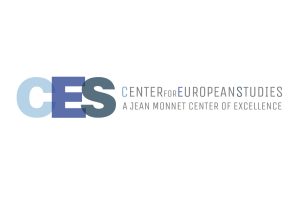 |
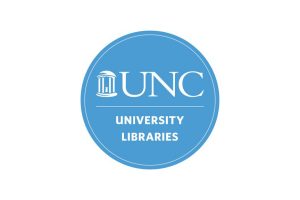 |
 |
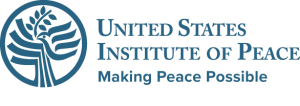 |
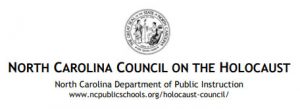 |
||
Program Material
Download Global Peace and Conflict Seminar 2020 Study Guide (Download may begin immediately)
Lodging & Directions



